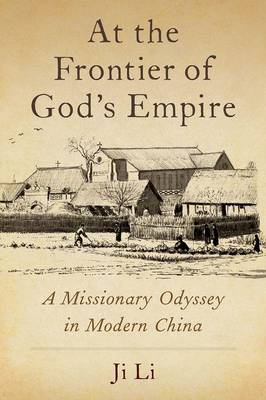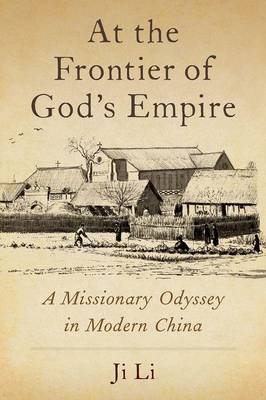
- Afhalen na 1 uur in een winkel met voorraad
- Gratis thuislevering in België vanaf € 30
- Ruim aanbod met 7 miljoen producten
- Afhalen na 1 uur in een winkel met voorraad
- Gratis thuislevering in België vanaf € 30
- Ruim aanbod met 7 miljoen producten
Zoeken
€ 157,95
+ 315 punten
Omschrijving
To a lively cast of international players that shaped Manchuria during the early twentieth century, At the Frontier of God's Empire adds the remarkable story of Alfred Marie Caubrière (1876-1948). A French Catholic missionary, Caubrière arrived in Manchuria on the eve of the Boxer Uprising in 1899 and was murdered on the eve of the birth of the People's Republic of China in 1948. Living with ordinary Chinese people for half a century, Caubrière witnessed the collapse of the Qing empire, the warlord's chaos that followed, the rise and fall of Japanese Manchukuo, and the emergence of communist China. Caubrière's incredible personal archive, on which Ji Li draws extensively, opens a unique window into everyday interaction between Manchuria's grassroots society and international players. His gripping accounts personalize the Catholic Church's expansion in East Asia and the interplay of missions and empire in local society. Through Caubrière's experience, At the Frontier of God's Empire examines Chinese people at social and cultural margins during this period. A wealth of primary sources, family letters, and visual depictions of village scenes illuminate vital issues in modern Chinese history, such as the transformation of local society, mass migration and religion, tensions between church and state, and the importance of cross-cultural exchanges in everyday life in Chinese Catholic communities. This intense transformation of Manchurian society embodies the clash of both domestic and international tensions in the making of modern China.
Specificaties
Betrokkenen
- Auteur(s):
- Uitgeverij:
Inhoud
- Aantal bladzijden:
- 272
- Taal:
- Engels
Eigenschappen
- Productcode (EAN):
- 9780197656051
- Verschijningsdatum:
- 3/02/2023
- Uitvoering:
- Hardcover
- Formaat:
- Genaaid
- Afmetingen:
- 163 mm x 236 mm
- Gewicht:
- 535 g

Alleen bij Standaard Boekhandel
+ 315 punten op je klantenkaart van Standaard Boekhandel
Beoordelingen
We publiceren alleen reviews die voldoen aan de voorwaarden voor reviews. Bekijk onze voorwaarden voor reviews.











